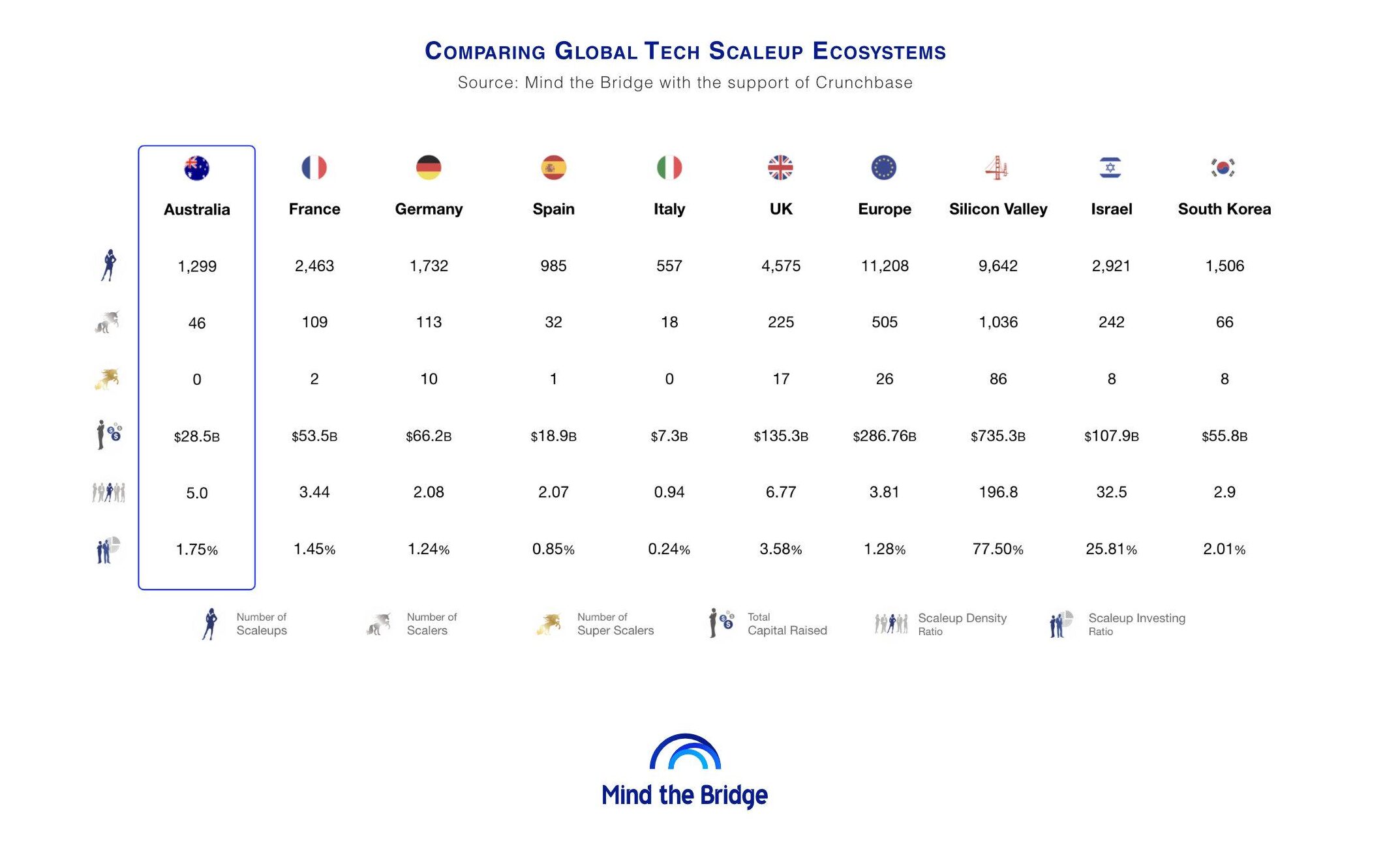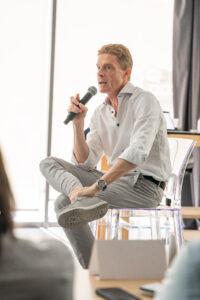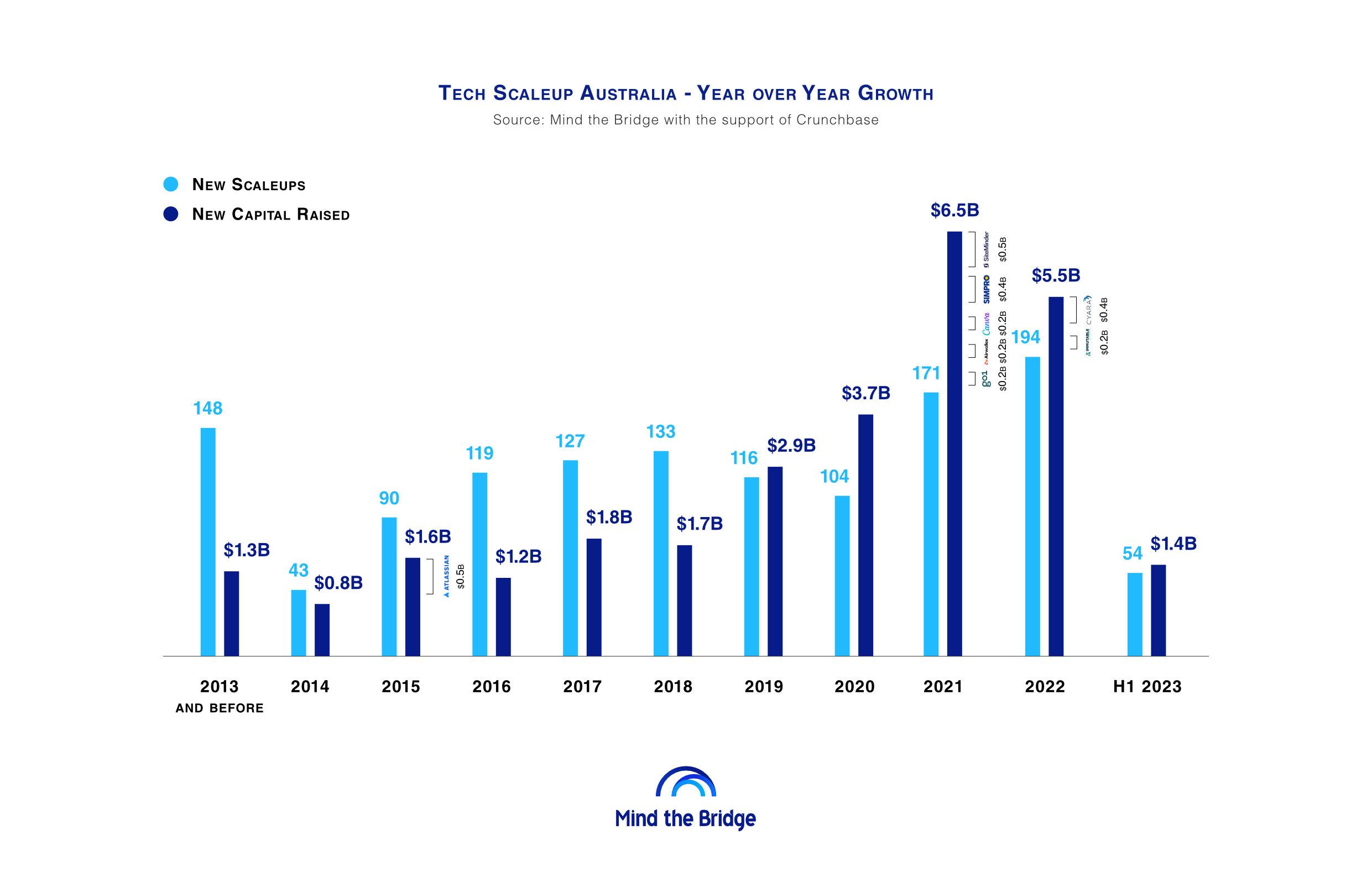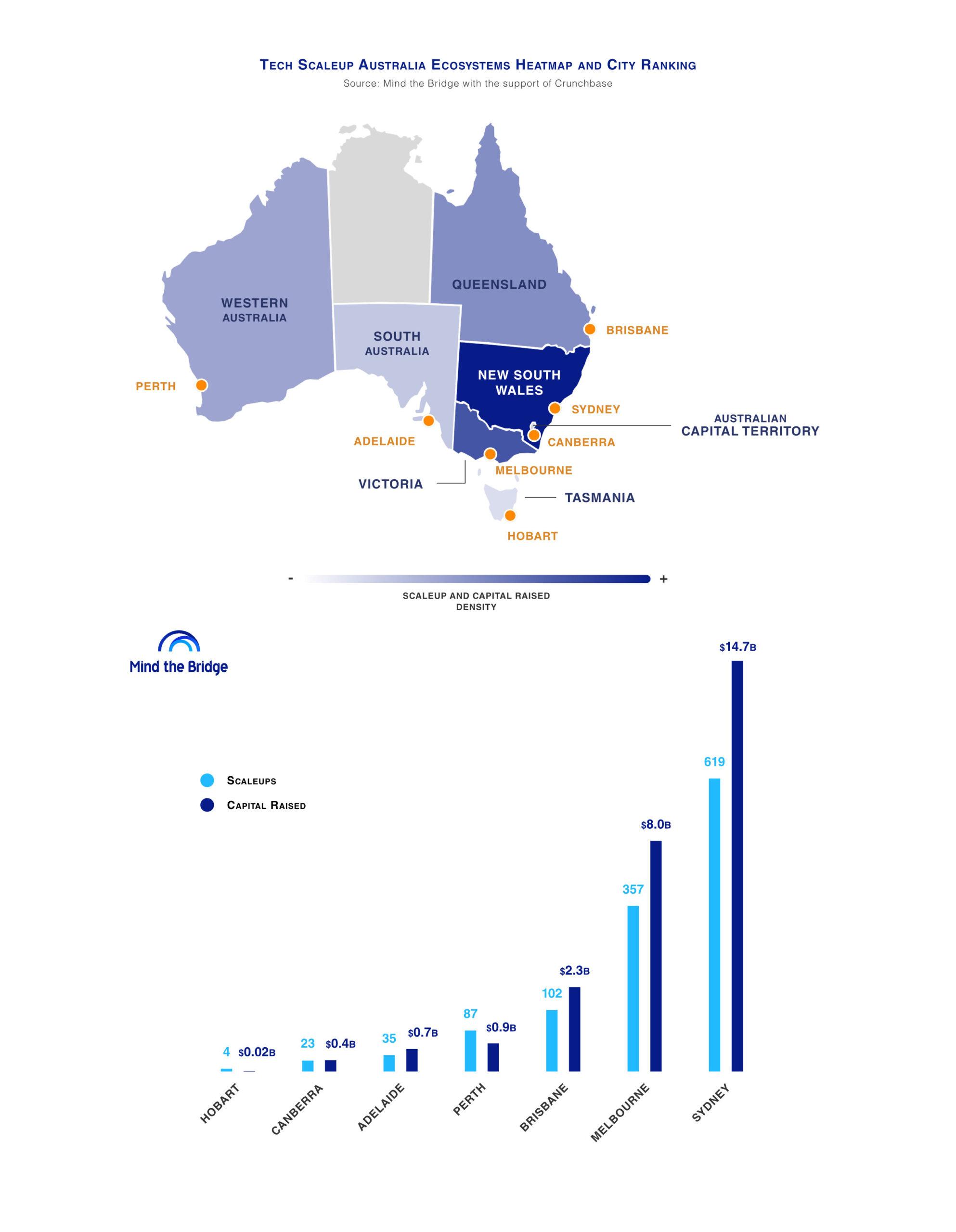There is a global race for innovation and startups today. Regions and cities around the world are working hard to push their own startup ecosystems and put them on the global map.
Unfortunately, the main “innovation hunters” (VC funds and large corporates) tend to focus their scouting efforts toward high-density ecosystems such as Silicon Valley and Israel.
What that means is until a certain threshold is reached in terms of volumes of startups, ecosystems tend to remain local, limiting their growth potential. In other words, no global connections, no party.

A rapidly growing ecosystem
 Albert Onetti, chairman and president of Mind the Bridge
Albert Onetti, chairman and president of Mind the BridgeAmong those emerging ecosystems, Australia can now be considered Tier 1.
It did not happen by chance that SXSW opened an “Aussie” chapter in Sidney, and Mind the Bridge added Australia to the Mind the Bridge Scaleup Summit world itinerary, after Israel, Silicon Valley and South Korea. During the summit, the Tech Scaleup Australia Report (realized together with Crunchbase) was launched.
Let’s dive into the numbers.
Australia now boasts nearly 1,300 scaleups and about 50 scalers ($100 million-plus in financing). With 200 scaleups and about $6 billion invested in each of the last two years alone, Australia is on track to be aligned with economies such as South Korea, France and Germany.

A continent with two major hubs
Sydney, with 619 scaleups and $15 billion raised, and Melbourne (357 scaleups and $8 billion raised), together host more than 75% of the country’s scaleups.
These figures are roughly on par with cities like Stockholm and Barcelona, or even match entire countries such as Italy.
It is not a coincidence that some Australian tech champions — Atlassian, SiteMinder, Canva, and Saluda Medical — call Sydney home.

The startup scene has plenty of steam
While the resounding, game-changing success stories are still to come (i.e. Canva’s IPO has not happened, yet) there’s plenty of momentum around the expectations of what the “innovation economy” can bring to the country.
While at SXSW Sydney we attended a demo day from Startmate, the Aussie version of Y Combinator, with the only difference being that they presented a handful of startups (12 in total, vs. the 400-plus of a YC demo day) but with 4x the attendees: 1,000-plus people packed the theater, cheering for 90 minutes like The Beatles were back in town.
Government plays a key role
The first SXSW Sydney was strongly “encouraged” by the NSW state, the same as the first Techstars Sydney.
NSW Startup House, where panels were hosted, is a brand-new building that hosts startups, and is part of the massive Tech Hub project that aims to turnSydney into a tech capital.
Most key events were opened by politicians, StartMate by the vice prime minister, and our report presentation by the minister of trade Hon. Anoulack Chanthivong.
What the next phase needs
Now, it remains to be seen if those high expectations of the startup movement as the new economy accelerator will be met.
- Growth and expansion capital are still scarce.
- Australia’s physical distance from the global innovation epicenters poses a challenge. Growth opportunities still depend on the ability to build international bridges.
- Except for a few exceptions like Telstra and AccionaCCIONA, Australian companies and SMEs are not yet very involved in open innovation.
However, the current players (government agencies included) seem to have all the resources to be able to harness this positive momentum and turn it into an economy-changing lever.
Alberto Onetti, chairman and president of San Francisco-based Mind the Bridge, divides his time between Europe and the U.S. working to bridge the world of startups and established corporates.
Illustration: Li-Anne Dias
Search less. Close more.
Grow your revenue with all-in-one prospecting solutions powered by the leader in private-company data.

 11 months ago
48
11 months ago
48